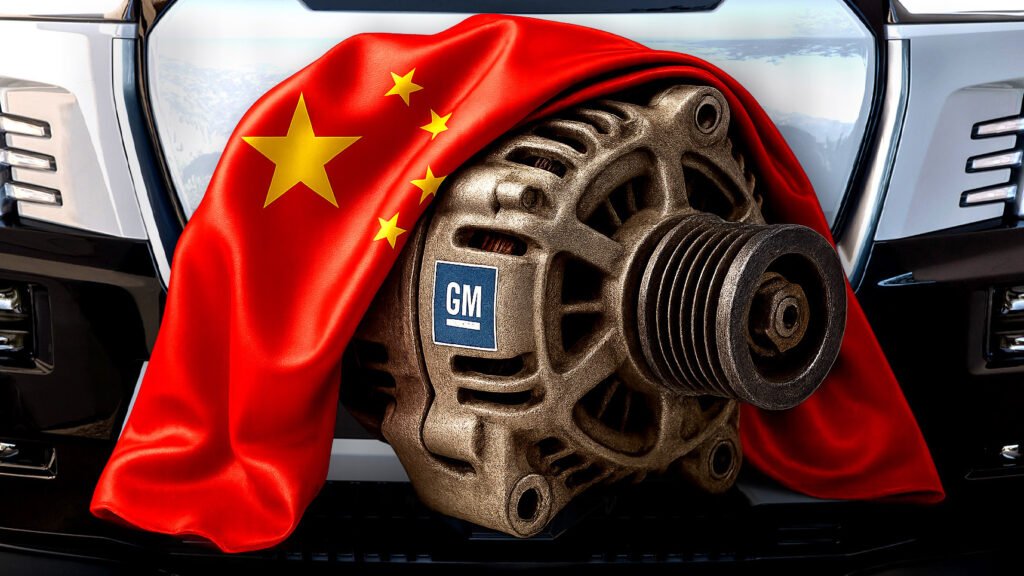

- GM reportedly told suppliers to remove Chinese parts entirely by early 2027.
- Automaker seeks long-term resiliency as trade tensions escalate this year.
- Suppliers warn replacing China ties after decades will be extremely difficult.
General Motors is working to distance itself from Chinese parts and materials, a shift that has taken on greater urgency as trade conditions continue to change.
The company’s latest move ties into a wider effort within Detroit to stabilize its supply base, and it has reportedly instructed thousands of suppliers to phase out Chinese content from their own operations, with some deadlines set for 2027.
According to the report from Reuters, the automaker is believed to have approached several parts makers in late 2024 to start identifying alternatives to components and materials sourced from China.
With relations between the United States and China still strained, GM has been focused on strengthening its supply chain in ways it hopes will reduce future disruptions.
Read: Tariffs Just Killed GM’s US Exports To China
It is understood that GM is especially focused on limiting Chinese content in vehicles built in North America and would prefer to source those parts from nearby factories.
Unnamed sources told the news outlet that the company is open to non-US supply lines, just as long as they are not in China. It is also thought to be urging suppliers to stop sourcing parts and materials from Russia and Venezuela.
Supply Chain “Resiliency”
While GM has yet to comment on the report, chief executive Mary Barra did recently note the company has been “working now for a few years to have supply chain resiliency.”
The automaker’s global purchasing chief, Shilpan Amin, also confirmed that, due to supply chain disruptions, it has been forced to shift away from relying solely on low-cost countries.

What Will Happen Next?
However, untangling the web of Chinese involvement in GM’s and its suppliers’ supply chains will not be an easy task. According to some supplier executives, the nation has become so dominant in certain areas that it can be hard to find alternatives.
The head of the Vehicle Suppliers Association, Collin Shaw, notes that existing supply chains involving China have been established over the past 20 or 30 years, and undoing them in just a few years is a tall order: “It’s not going to happen that fast,” he told Reuters.
The fiery relationship between US President Donald Trump and the People’s Republic only heightened trade tensions between them this year. While the two nations did recently agree to cut retaliatory tariffs, companies like GM can’t rely on such a deal lasting in the long term.



